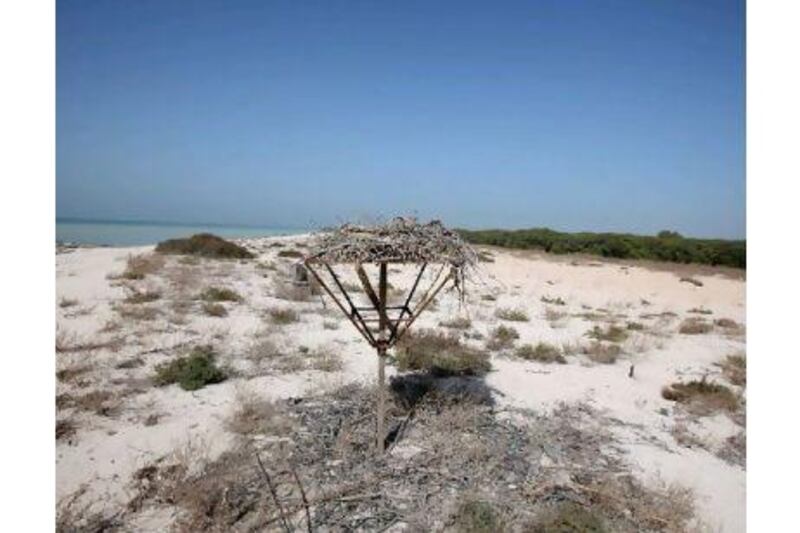This is really a good initiative from Bee'ah; recycling is new in the UAE and not all people are aware of it (The vending machines that work in reverse, September 28). Even people who do recycle might not know the reason behind it and how it could affect the environment positively.
Reverse vending machines that give people gift vouchers will encourage people to recycle. To improve the education process, perhaps the vouchers should have information on the importance of recycling and its effects on the environment. Maybe they could even include some figures related to the UAE in terms of waste.
This amazing initiative will help in reducing the carbon footprint of the UAE, and will make people aware of the country's effort to promote sustainability.
Sharifa Al Adawi, Abu Dhabi
Road ahead for Libya will be long
The vivid picture of Libya's former leader, Muammar Qaddafi, half naked and covered in blood in a cold storage unit, made for sad viewing (Qaddafi killed as Sirte falls to NTC: Libya, October 20). Qaddafi met a cruel end, but he had been popular and was considered a great Afro-Arab leader in the 1970s.
If only Qaddafi had been more sensitive to his people and granted them a greater say in managing the country, he might have survived the wrath of his people.
Younger generations across the world resent authoritarianism; higher exposures to education, greater access to information and social networking sites have removed the traditional inhibitions and shackles of fear in many societies. Qaddafi ignored these trends.
The people of Libya have a tough task ahead of them. Even after a regime is dismantled it takes decades to inculcate democratic values and attitudes. The road ahead is tough. The journey has just begun.
Rajendra K Aneja, Dubai
Access to island will help its fame
One of the problems associated with persuading residents to vote for Bu Tinah Island as one of the New 7 Wonders of Nature (Less than one month left to become a champion of Bu Tinah, October 24) is that very few people have ever visited it, or been allowed to access it.
Maybe some appropriately managed excursions open to the public would have helped?
Steve Peacock, Abu Dhabi
Stop paying for high-priced water
Restaurants keep charging outrageous prices because people keep paying (Restaurants' charges for water 'wrong and illegal'). Every time an eatery sells a bottle for Dh15 or more, they've made their break-even for the day. Every bottle sold after that is pure profit.
How do we end it? Stop buying them at these inflated prices. If consumers refuse to pay the prices advertised, someone on top of the greed chain will one day notice.
Name withheld by request
TB deportation is dangerous policy
Your article, Threat of deportation 'increases spread of TB' (October 25), was insightful for a number of reasons.
For one, the law is cruel to many people. I do hope that they really realise how many families are separated because of this inhuman and outdated treatment of people with a disease that can be treated.
In fact, there is a big difference between active and inactive tuberculosis. With proper treatment TB can be contained. How many other countries enforce such a policy of banning people who once had the illness?
Yanita, Bulgaria
Sri Lanka's cricket, a work in progress
Most Sri Lankans would agree with Osman Samiuddin regarding their country's cricket (Sri Lanka cricket is competitive, but not yet complete, October 24). But here are some additional points that might be contributing to the way things are at this time.
The sport in Sri Lanka rose to great heights in the mid-1990s due primarily a fabulous school cricket system. It consolidated itself through Arjuna; the company launched a Sri Lankan brand of cricket and looked to the districts for raw, unbridled and unconventional talent.
But some shortcomings were not addressed. Sri Lanka is pretty thin on financial resources and the controlling body and related politicians have not exactly distinguished themselves in proper governance.
Add to that the supply chain is affected by steeply declining standards at the school level. Finally, one must recognise the paucity of opportunity at the top level where Sri Lanka rarely plays abroad as fixtures are dollar driven.
It's going to get worse before it gets better.
Thomas Thurairatnam, Canada





